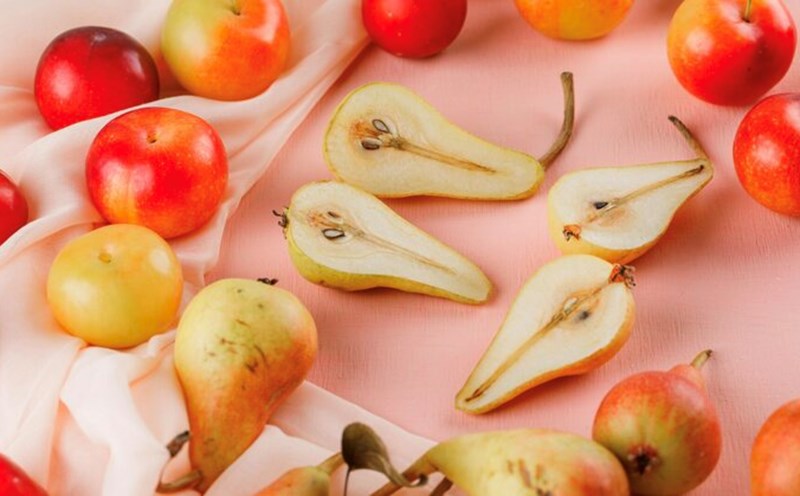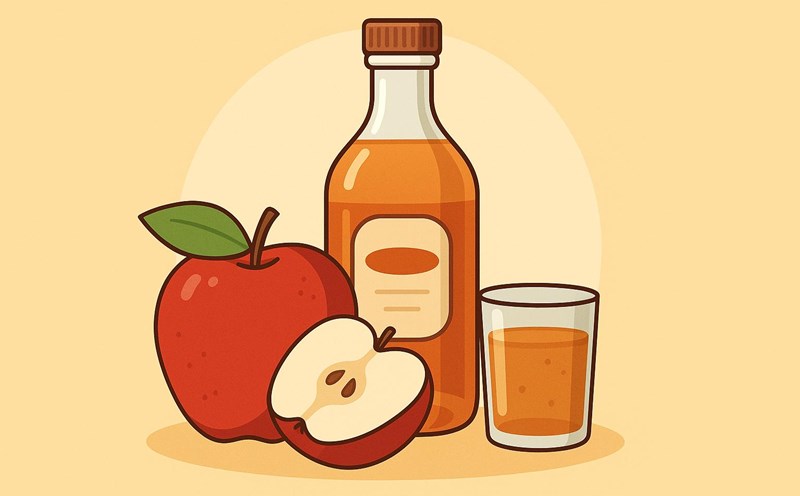According to Dr. Tran Thi Tra Phuong, Tam Anh General Hospital, people with diabetes can eat apples, but they need to consume them in moderation. The doctor also pointed out things to note when eating apples to prevent blood sugar from rising.
3 cases where you should limit eating apples
According to the doctor, people with diabetes can eat apples but that means they can eat a lot. Patients need to choose the right type of apple, pay attention to how to eat it safely and beneficially. First of all, patients should monitor their blood sugar index after eating apples to assess their body's reaction. On the other hand, if you are taking medication such as insulin or SGLT-2 inhibitors, you should talk to your doctor because apples can affect the effectiveness of treatment. In addition, some cases need to limit eating apples.
People with kidney complications, because apples contain potassium, can cause accumulation when the kidney's filtering function is impaired.
People with a glycemic index often exceed control threshold, especially when the HbA1c index is high or fasting blood sugar >10 mmol/L.
Pregnant women with gestational diabetes need to closely monitor carbohydrate portions according to a special prescription from the doctor.
5 notes when eating apples for people with diabetes
Divide the dose, do not eat more than 2 fruits/day
On average, people with diabetes can consume 1 small to medium apple per meal. At the same time, you should not eat more than 2 fruits/day to ensure a balanced and varied diet. When eating apples as a dessert after main brim, patients should not eat more than 1 apple or less (depending on the amount of carbohydrates consumed before) to limit the risk of high blood sugar.
Should eat apples before main meals
Research shows that eating 150g of apples before main meals can significantly improve post-meal hyperglycemia in normal people and people with diabetes. However, if you do not like to eat apples before main meals, you can eat apples as a snack (2-2.5 hours after breakfast; 2.5-3 hours after lunch) or as a dessert.
People with diabetes can eat apples but must control their portion sizes, eat them with main meals or take side meals far from insulin/hypoglycemic drugs, avoid eating too much at the same time.
Eat the skin but prioritize choosing organic apples
Apple peel contains 2-6 times more antioxidants than apple meat. Therefore, instead of peeling off the skin, patients should wash and eat the skin. To keep the apple peel dusty and free of backlogs of chemicals, patients should prioritize choosing organic apples, soak them in diluted salt water or rinse them with a specialized solution to remove the chemicals.
Should avoid drinking bottled apple juice and dried apples
Bottled apple juice and dried apples contain a lot of added refined sugar, which poses a high risk of stimulating blood sugar levels even if consumed in small amounts.
Choose green apples that contain less sugar than red apples
When wondering if diabetes can eat apples, patients need to pay attention to choosing the right type of apple to optimize health benefits. Specifically, green apples with a mild sourness often contain less sugar than red apples, thereby helping to limit the risk of increased blood sugar after eating.
In addition, patients should prioritize eating fresh apples, keeping the skin on and washing them instead of using jujube, dried apples or processed products - which can lose fiber and easily add sugar.
Eating whole apples also helps to fully utilize antioxidants and insoluble fiber in the skin, supporting more effective blood sugar control.











